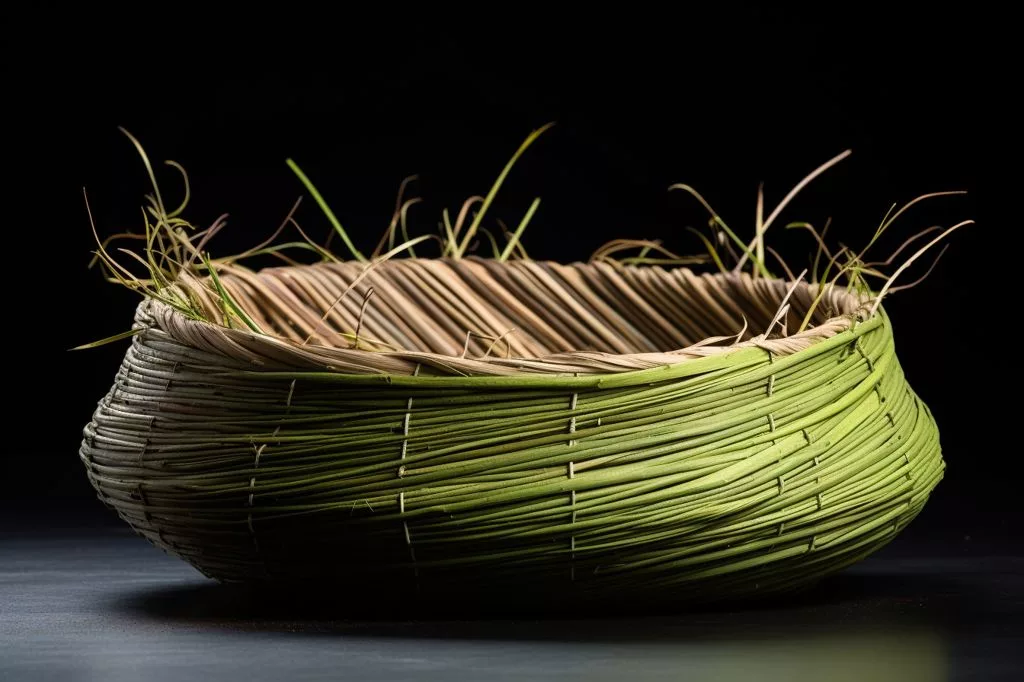South African entrepreneurs Michelle and Mo Mokone, founders of Mo’s Crib, are using the African Growth and Opportunity Act (AGOA) to enter the US market with their range of handmade home decor items. Their eco-friendly merchandise is made from materials such as recycled plastic and various grass species, with the siblings committed to preserving the environment and fostering the growth of their community. Mo’s Crib plans to expand beyond the US, with an aim to generate 20 new jobs within the next three years, while their success serves as a model for other small businesses seeking to make a positive impact.
South African siblings Michelle and Mo Mokone, founders of the home decor enterprise Mo’s Crib, are exploring international trade by tapping into the United States market. Their range of handmade items consists of handwoven baskets, planters, trays, wall decorations, and outdoor home accessories, all crafted with an emphasis on environmental sustainability. In 2021, they opted to take advantage of the African Growth and Opportunity Act (AGOA), a United States Trade Act implemented in May 2000.
AGOA: A Gateway to the US Market
AGOA enables 35 eligible Sub-Saharan nations to export 1,835 tariff lines duty-free to a major consumer market in the US. Michelle, Mo’s Crib’s Operations and Supply Chain Director, states that their merchandise is made from distinctive materials like ultra-strong Polyvinyl Chloride plastic reclaimed from landfills and South African construction sites, along with various grass species. This eco-friendly approach stems from the siblings’ dedication to preserving the environment.
Michelle states that Mo’s Crib’s mission is to “utilize South African artisans’ expertise to raise awareness about the most urgent environmental and social challenges faced today.” Each sale contributes to economic and educational opportunities for South African men and women while reducing plastic waste in Pretoria’s natural resources. The sisters are not only committed to protecting the environment, but also to fostering the growth of the people in their community.
Expansion Goals and Community Impact
Michelle reveals their ambition to create opportunities and generate a significant impact. They plan to broaden their presence beyond the US, entering new markets like Europe and the United Arab Emirates. The company has established an internal target of generating 20 new jobs within the next two to three years. To handle the compliance and administration process, a forwarding agent supported them in booking numerous containers.
Since 2021, Mo’s Crib has sent a total of eight containers to the US, with plans to send two more by the end of 2023. The company also regularly ships a container to fulfill their online store orders, which is managed through a warehouse in New Jersey. Although shipping is relatively costly for a small, 100% self-funded business, Michelle acknowledges that they have gained considerable market access through AGOA. At present, US orders make up 60% of their total revenue.
Securing AGOA’s Future for South Africa
South Africa is striving to obtain a renewal and extension of AGOA through direct interactions between government and business representatives, as well as with members of the US Senate and Congress across party-political lines. Ebrahim Patel, the Minister of Trade, Industry, and Competition, informed Members of Parliament during a recent parliamentary briefing that South Africa’s involvement in AGOA benefits neighboring countries via shared value chains.
Mo’s Crib’s inspiring success story demonstrates how small businesses can expand and prosper in international markets by leveraging opportunities like AGOA. The Mokone sisters’ commitment to sustainability, community development, and global market expansion serves as a model for other entrepreneurs seeking to make a positive impact through their ventures.
What is AGOA?
AGOA stands for African Growth and Opportunity Act, which is a United States Trade Act implemented in May 2000. It enables 35 eligible Sub-Saharan nations to export 1,835 tariff lines duty-free to a major consumer market in the US.
How is Mo’s Crib taking advantage of AGOA?
Mo’s Crib, a South African home decor enterprise, is using AGOA to enter the US market with their range of handmade eco-friendly home decor items made from recycled plastic and various grass species.
What is Mo’s Crib’s mission?
Mo’s Crib’s mission is to “utilize South African artisans’ expertise to raise awareness about the most urgent environmental and social challenges faced today.” Their commitment is not only to protecting the environment but also to fostering the growth of the people in their community.
What are Mo’s Crib’s expansion goals?
Mo’s Crib plans to expand beyond the US, entering new markets like Europe and the United Arab Emirates. The company has established an internal target of generating 20 new jobs within the next two to three years.
How is Mo’s Crib shipping their products to the US?
Mo’s Crib has sent a total of eight containers to the US, with plans to send two more by the end of 2023. They also regularly ship a container to fulfill their online store orders, which is managed through a warehouse in New Jersey.
What percentage of Mo’s Crib’s revenue comes from US orders?
At present, US orders make up 60% of Mo’s Crib’s total revenue.
What impact is Mo’s Crib making on their community?
Mo’s Crib’s commitment to sustainability and community development is reflected in their dedication to reducing plastic waste in Pretoria’s natural resources while contributing to economic and educational opportunities for South African men and women.
How is South Africa working to secure AGOA’s future?
South Africa is striving to obtain a renewal and extension of AGOA through direct interactions between government and business representatives, as well as with members of the US Senate and Congress across party-political lines. Ebrahim Patel, the Minister of Trade, Industry, and Competition, informed Members of Parliament during a recent parliamentary briefing that South Africa’s involvement in AGOA benefits neighboring countries via shared value chains.








